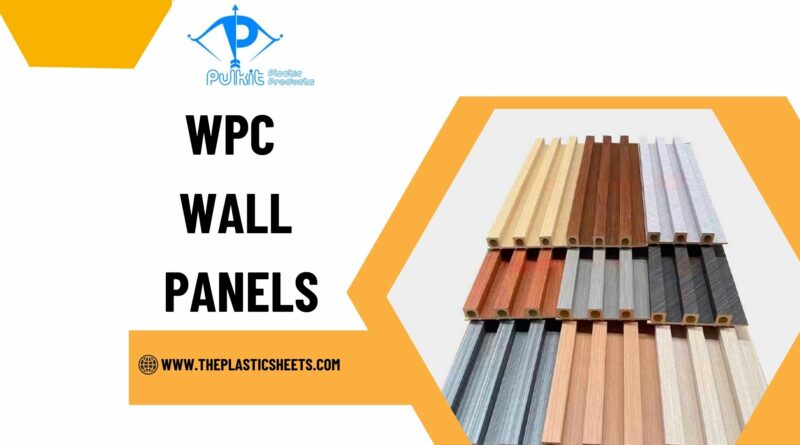WPC Wall Panels: A Sustainable Alternative to Traditional Wood Panels
In an era where sustainability is increasingly becoming a priority in construction and design, consumers and builders alike are seeking eco-friendly materials that do not compromise on quality or aesthetics. One such material that is gaining popularity is Wood Plastic Composite (WPC) wall panels. As an innovative solution, WPC panels present several benefits over traditional wood panels, including durability, low maintenance, and environmental sustainability—all while offering a range of design options. Let’s explore WPC wall panels, their benefits, applications, costs, and address some frequently asked questions.
What are WPC Wall Panels?
WPC wall panels are composite materials comprised of wood fibers and plastic, typically created through a process called extrusion. The combination of these materials results in a product that retains the aesthetic appeal of wood but with far superior properties. Produced in various colors, textures, and finishes, WPC panels can seamlessly fit into both indoor and outdoor environments.
Benefits of WPC Wall Panels
- Sustainability: One of the most significant advantages of WPC wall panels is their sustainability. By utilizing recycled wood fibers and plastics, they contribute to reducing waste and the depletion of natural resources. Traditional wood panels often lead to deforestation, whereas WPC panels offer a choice that mitigates environmental impact.
- Durability: WPC panels are engineered to withstand the rigors of various environmental conditions. Unlike conventional wood, which can warp, crack, or rot when exposed to moisture, WPC panels are resistant to these issues. This makes them an ideal choice for areas with high humidity or significant temperature fluctuations.
- Low Maintenance: WPC panels require minimal upkeep compared to wooden alternatives. They do not need regular painting or staining, as their color and finish remain intact over time. A simple wash with soap and water is usually enough to keep them looking fresh.
- Cost-Effectiveness: When it comes to the Wood panel price, WPC panels often come in at a more favorable cost than traditional wood. Although prices can vary based on specific products, the overall savings in maintenance and longevity make WPC a financially sound investment.
- Aesthetic Variety: WPC wall panels come in a wide range of designs, textures, and colors. This versatility allows for creative freedom in interior and exterior design. From sleek modern finishes to rustic surfaces, there’s a suitable option for any aesthetic vision.
Applications of WPC Wall Panels
WPC wall panels are highly versatile and can be used in various applications:
- Indoor Wall Coverings: WPC panels can enhance the interiors of homes, offices, and commercial buildings. Their aesthetic appeal and durability make them an excellent choice for accent walls, living rooms, or offices.
- Outdoor Paneling for Walls: Given their resistance to moisture and UV rays, WPC wall panels are perfect for Outdoor paneling for walls uses, such as cladding for exterior walls, garden fences, and patio enclosures. They effectively resist warping, ensuring long-term performance in outdoor settings.
- Partitioning: WPC panels can be effectively utilized for partition walls in office spaces or large open-plan areas. They provide a stylish way to create distinct spaces without sacrificing aesthetics.
- Decorative Elements: WPC panels can also be crafted into decorative features such as wooden fluted panels, adding a touch of sophistication and charm to various spaces.
Cost Considerations
When evaluating the Wooden fluted panel price or the cost of traditional wood panels, WPC panels often emerge as a more economical choice. The initial investment for WPC wall panels can be competitive, ranging from approximately $3 to $10 per square foot, depending on the design and thickness. Although the price may fluctuate based on specific designs, the durability and reduced maintenance costs significantly enhance their long-term value.
Leading Manufacturer: Pulkit Plastic Products
As demand for sustainable building materials grows, companies like Pulkit Plastic Products are at the forefront of manufacturing high-quality WPC wall panels. With a commitment to quality and innovation, Pulkit Plastic Products offers a diverse array of WPC solutions that cater to various customer preferences. Whether for residential or commercial purposes, Pulkit Plastic Products ensures that their WPC panels meet industry standards while providing exceptional aesthetic appeal and durability.
Conclusion
WPC wall panels represent a sustainable and durable alternative to traditional wood panels, catering to increasing consumer demand for environmentally friendly construction materials. With numerous benefits such as low maintenance, aesthetic versatility, and competitive pricing, WPC panels are suitable for various applications ranging from indoor wall coverings to outdoor paneling for walls. With the backing of reputable manufacturers like Pulkit Plastic Products, WPC panels are poised to become a staple in modern construction and design.
Frequently Asked Questions (FAQs)
1. What is the difference in price between WPC and traditional wood panels?
The wood panel price can vary widely based on species, quality, and finish. However, in many cases, WPC panels may be cheaper when considering all costs (including maintenance and lifespan) in comparison to high-quality traditional wood panels.
2. Are WPC wall panels suitable for outdoor use?
Yes, WPC wall panels are excellent for outdoor paneling for walls due to their resistance to moisture, UV rays, and various weather conditions. They are an ideal option for patios, garden fencing, and outdoor living spaces.
3. How do WPC wall panels compare to PVC panels?
While both materials have their benefits, WPC panels are composed of wood fibers and plastic, giving them a more natural appearance and feel. In contrast, PVC panels are made entirely from synthetic materials, which may lack the aesthetic warmth of real wood.
4. Can WPC wall panels be recycled?
Yes, WPC wall panels are recyclable. Their components can be reprocessed and utilized to produce new WPC products or other materials, reducing their environmental footprint.
5. What maintenance do WPC wall panels require?
WPC wall panels are low maintenance. Typically, a simple wash with mild soap and water is sufficient to maintain their appearance. They do not require painting, staining, or sealing.


